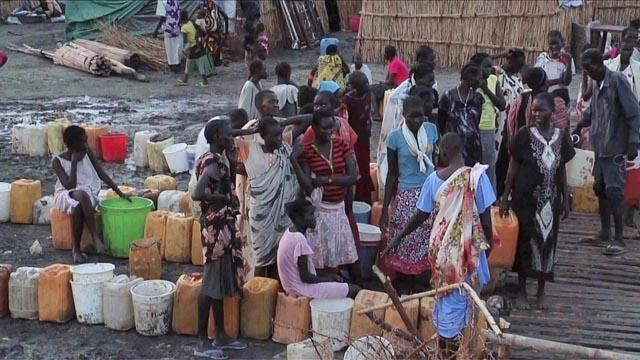JUBA — South Sudanese government troops were Saturday battling to recapture Bor, the last remaining rebel-held town, the army said, a day after wresting control of a key northern oil city.
UN chief Ban Ki-moon and the Security Council, meanwhile, urged President Salva Kiir to free political detainees loyal to rebel leader Riek Machar in order to kickstart stalled peace talks.
The UN leader also warned that evidence of widespread atrocities committed during the nearly month-long conflict would be investigated, and that “perpetrators of serious human rights violations will be held accountable”.
The fighting has forced nearly 400,000 people to flee their homes and caused “very substantially in excess” of 1,000 dead, according to the United Nations.
Of those forced to flee, some 350,000 are internally displaced and the remainder have fled into neighbouring countries.
The International Crisis Group, an independent think-tank, said it believed as many as 10,000 people have been killed in just four weeks of fighting in the world’s youngest nation, which won independence from Khartoum only in 2011.
“There is still fighting near Bor,” South Sudan’s army spokesman Philip Aguer told AFP on Saturday, amid government efforts to mobilise thousands of more troops and deal a final, crushing blow to Machar — a former vice president and seasoned guerrilla fighter — and his allies.
On Friday the army marched into Bentiu, capital of the northern oil-producing Unity State, although the rebels insisted it was only a “temporary setback”. Machar told AFP by telephone that his forces would fight on and defend Bor, capital of the flashpoint state of Jonglei some 200 kilometres north of national capital Juba.
“We withdrew from Bentiu, but it was to avoid fighting in the streets and save civilian lives. We fight on, we will continue the battle,” Machar told AFP by phone from an undisclosed location.
A rebel military spokesman also claimed that anti-government forces still controlled vital oil infrastructure near Bentiu. South Sudan’s crude production, a key source of income for the impoverished nation, has dropped by around a fifth since the fighting began.
An AFP reporter in Minkammen, across the White Nile from Bor where tens of thousands of people have sought refuge, saw dozens of government soldiers boarding barges and heading to the frontline.
Fighting began on December 15 as clashes inside army units, but spread rapidly with government troops fighting huge battles against breakaway soldiers and ethnic militiamen loosely allied to Machar.
The conflict has also sparked a sharp upsurge in ethnic violence between members of President Kiir’s majority Dinka tribe against Machar’s Nuer community.
The East African regional bloc IGAD has been hosting ceasefire talks in a luxury hotel in the Ethiopian capital Addis Ababa, and trying to get the two sides to agree to a ceasefire.
But Machar has demanded that 11 of his allies who were arrested by the government when the fighting started be released before he agrees to a truce. President Kiir has refused to free them, arguing they should be put on trial for what he maintains was a coup attempt.












